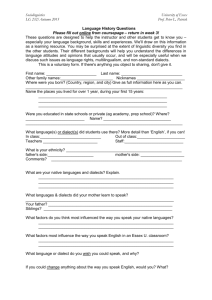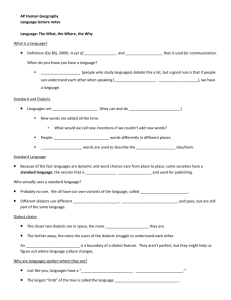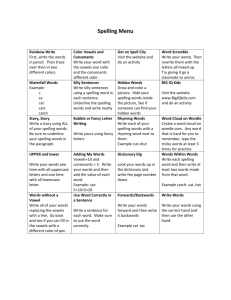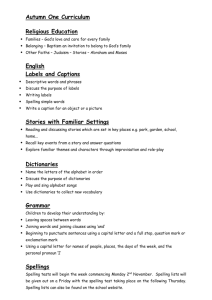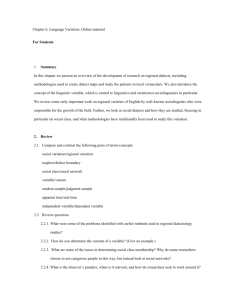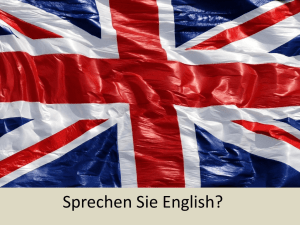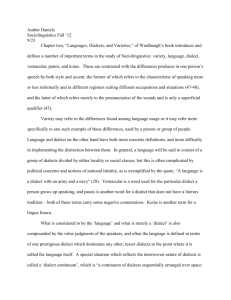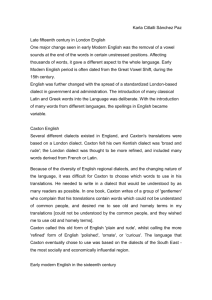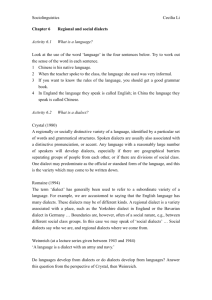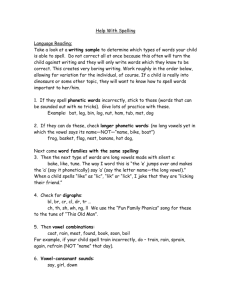FREEBORN-SARAH - EVOLUCION-INGLES-ENSJ
advertisement
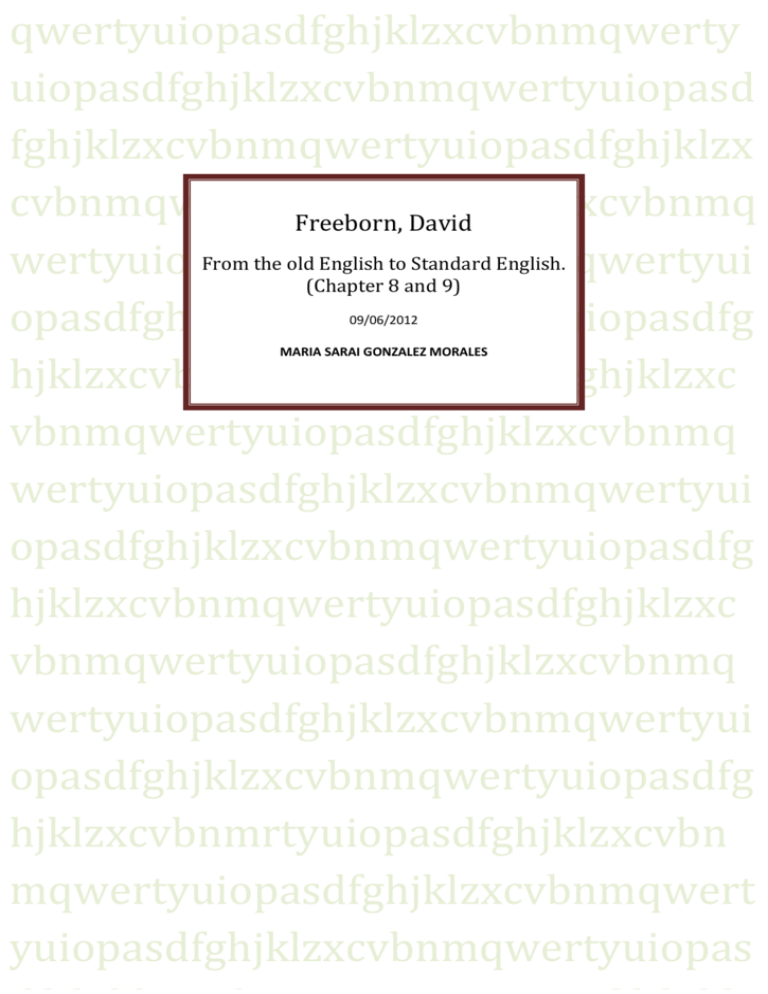
qwertyuiopasdfghjklzxcvbnmqwerty uiopasdfghjklzxcvbnmqwertyuiopasd fghjklzxcvbnmqwertyuiopasdfghjklzx cvbnmqwertyuiopasdfghjklzxcvbnmq Freeborn, David From the old English to Standard English. wertyuiopasdfghjklzxcvbnmqwertyui (Chapter 8 and 9) opasdfghjklzxcvbnmqwertyuiopasdfg hjklzxcvbnmqwertyuiopasdfghjklzxc vbnmqwertyuiopasdfghjklzxcvbnmq wertyuiopasdfghjklzxcvbnmqwertyui opasdfghjklzxcvbnmqwertyuiopasdfg hjklzxcvbnmqwertyuiopasdfghjklzxc vbnmqwertyuiopasdfghjklzxcvbnmq wertyuiopasdfghjklzxcvbnmqwertyui opasdfghjklzxcvbnmqwertyuiopasdfg hjklzxcvbnmrtyuiopasdfghjklzxcvbn mqwertyuiopasdfghjklzxcvbnmqwert yuiopasdfghjklzxcvbnmqwertyuiopas 09/06/2012 MARIA SARAI GONZALEZ MORALES EARLY MODERN ENGLISH I – THE FIFTEENTH CENTURY It was in the fifteenth century when English as a language change from a Middle English to a Modern English. EARLY CENTURY EAST MIDLANDS DIALECTS. Margery Kempe was a marriage woman from King´s Lynn. In 1420 she dictated a book describing her visions, temptations and journeys. The dialect of the book is East Midlands. Let´s check a short paragraph about her book: On a nyght as Pis creature in hir bedde with hir husband sche herd a sownd of melodye so swed & delectable hir Powt as sche had ben in paradise. Now lets check the same paragraph in the actual English: On a night as this creature in her bed with her husband she heard a sound of melody so sweet & delectable to her (it) seemed as she had been in paradise It is very obvious how in the Modern English, the written form of the words was very specific in the sound of the words. Consonants like Y or W, used to sound like vowels. LATE FIFTEENTH CENTURY LONDON ENGLISH Willian Caxton is known as the first English printer. He also translate into English and edited many of the books that he printed, and he provided as considerable number of prefaces and commentaries. The invention of printing was one factor, in the complex interaction of political and economic changes in England by the end of the 15th century, which led in time to the acceptance of the educated London dialect as the basis of Standard English. EARLY MODERN ENGLISH II – THE SIXTEENTH CENTURY Variations in the English had been occurring because there were not dictionaries or spelling books to refer to until sixteenth century. ENGLISH DICTIONARIES MEN & OTHER BOOKES WRITTEN BY LEARNED During this century dictionaries, spelling books and grammar of English were published. The writers were responding to a growing sense that the language needed and agreed form of spelling grammar and vocabulary. People realized that letters of the alphabet were not enough to match the sound of English, and the spelling of many books did not match their pronunciation. CHANGES IN ENGLISH PRONUNCIATION – THE GREAT VOWEL SHIFT The shift was not completed in 1569 and there was a variation between regional and social dialects speakers, but in the time all the long vowels were either raised or became diphthongs. consequently the sound of short vowels represented by the letters a, e, i, o, u has remained more or less the same, while the sounds of the long vowels no longer match the letters. THE DEVELOPMENT OF THE STANDARD LANGUAGE In England people now tend to regard the Standard English dialects as the English languages and look on the other regional and social dialects substandard or inferior. A written standard was the first to develop. Educated men and women wrote in the standard but continued speaking in the dialect of their regions.
